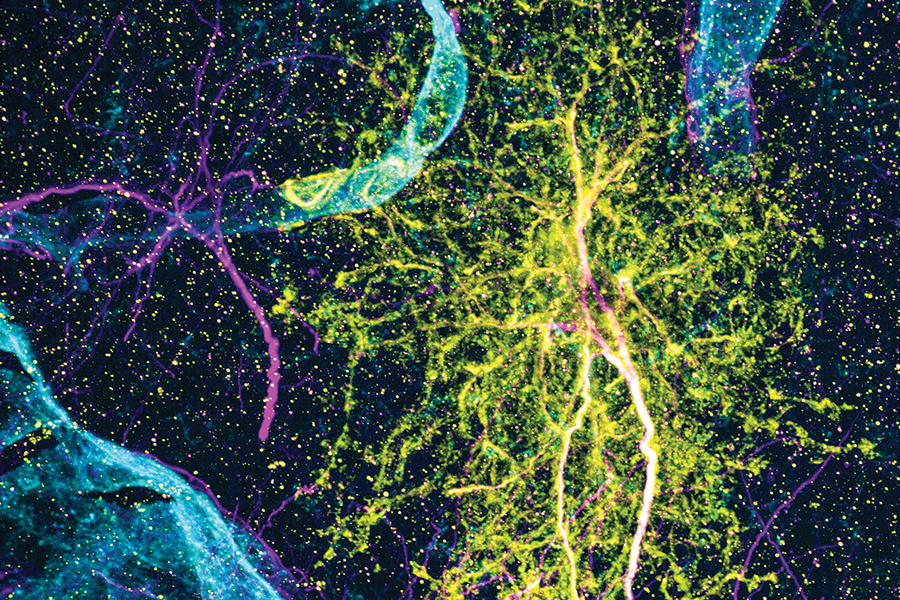Listening to Synapses
Guoping Feng is interested in how synapses — the connections between neurons — contribute to neurodevelopmental and psychiatric diseases, including autism spectrum disorder (ASD) and schizophrenia. He leads research that uses molecular genetics combined with behavioral and electrophysiological methods to study the components of the synapse.
Feng is perhaps best known for pioneering a gene-based therapy that could reverse a severe form of autism that is caused by a single mutation in the SHANK3 gene. After genetically engineering the SHANK3 mutation in animal models using CRISPR-based technology, Feng’s gene-correction therapy greatly reduced SHANK3 symptoms, restoring the animals’ cognitive, behavioral, and motor functions.
Additionally, the lab has leveraged genetic technologies to help map the cellular diversity in the brain—a valuable tool in neuroscience research. Through understanding the molecular, cellular, and circuit changes underlying brain diseases and disorders, the Feng lab hopes to eventually inform new and more effective treatments for neurodevelopmental and psychiatric disorders.
Biography
Guoping Feng joined the McGovern Institute in 2010 and current serves as its associate director. He is a faculty member in the brain and cognitive sciences department, where he holds the James W. (1963) and Patricia T. Poitras Professorship. Feng is also the director of the Hock E. Tan and K. Lisa Yang Center for Autism Research at MIT as well as director of model systems and neurobiology in the Stanley Center for Psychiatric Research at the Broad Institute.
Originally from Zhejiang Province in China, Guoping Feng studied medicine at Zhejiang University School of Medicine. He obtained his PhD from the State University of New York at Buffalo in the laboratory of Linda Hall and postdoctoral training at Washington University in St. Louis under the guidance of Joshua Sanes. Prior to joining the faculty at MIT in 2010, he was a faculty member in the neurobiology department at Duke University School of Medicine.
Honors and Awards
Honors
- Member, National Academy of Sciences
- Member, National Academy of Medicine
- Member, American Academy of Arts and Sciences
- Fellow, American Association for the Advancement of Science
- Councilor, Society for Neuroscience
Awards
- 2021 – Excellence in Graduate Mentoring, Department of Brain and Cognitive Sciences, MIT
- 2021 – Outstanding Postdoctoral Mentor Award, Department of Brain and Cognitive Sciences, MIT
- 2020 – Frank E. Perkins Award for Excellence in Graduate Advising, MIT
- 2015 – Scientific Innovations Award, Brain Research Foundation
Virtual Tour of Feng Lab



